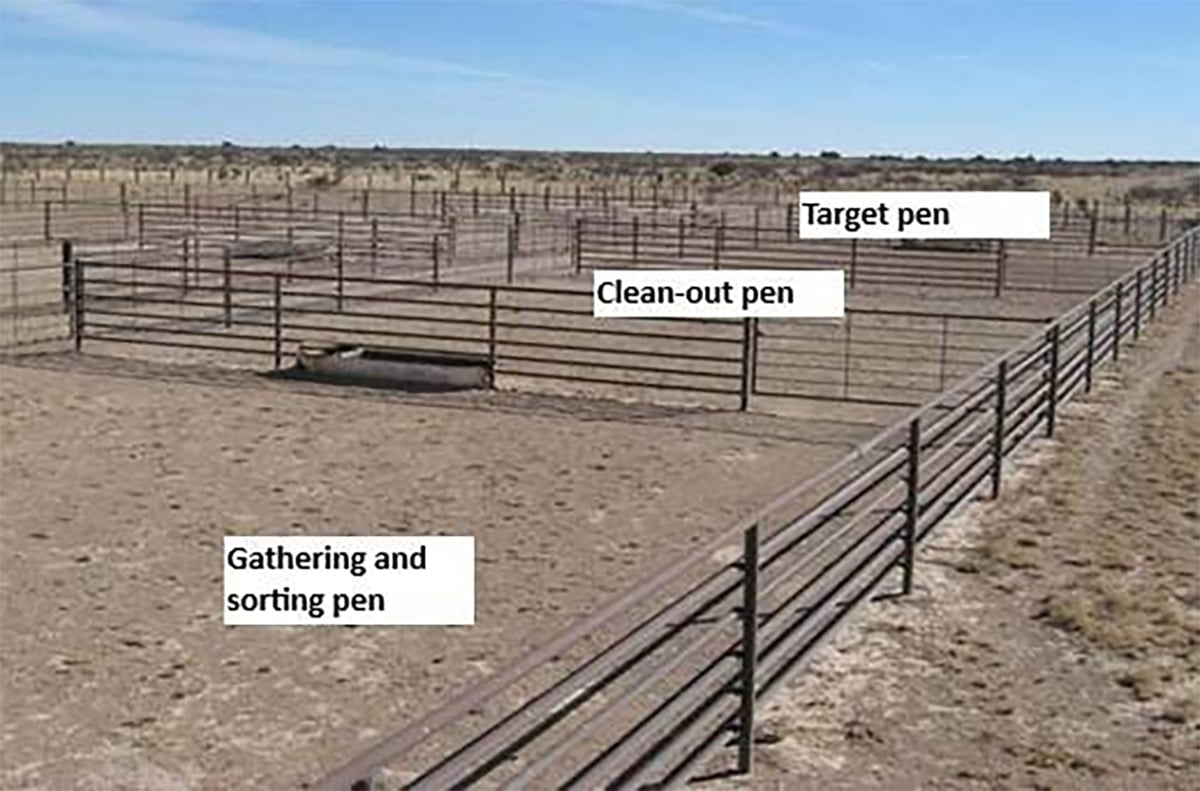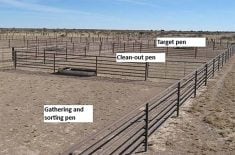FOREMOST, Alta. – A controversial mega hog farm will not be built in southeastern Alberta.
Taiwan Sugar Corporation’s application to build a multiple site hog development with more than 80,000 animals was rejected by the County of Forty Mile planning commission July 10.
The company has until July 25 to appeal the decision, said Alvin Cruickshank, development officer for the county.
The Taiwanese agricultural corporation has been informed of the decision but has not told its Canadian representatives, DGH Engineering of Winnipeg, if it will appeal.
Read Also

Teamwork and well-designed handling systems part of safely working cattle
When moving cattle, the safety of handlers, their team and their animals all boils down to three things: the cattle, the handling system and the behaviour of the team.
“Taiwan Sugar said they would not locate in a community where they were not welcome,” said DGH spokesperson Clarence Froese.
The company made a similar application to Flagstaff County in central Alberta. A decision from that jurisdiction is expected by the end of August.
The Forty Mile planning commission had two major concerns with the 7,200- sow operation.
Commission members felt that odors from the barns and liquid manure injection onto surrounding land could adversely affect neighbors and lower property values.
They also said there was potential for surface and groundwater contamination from manure storage, application runoff and spreading.
“Our reaction was one of puzzlement,” said Froese. “The two areas of concern are the two areas where we thought we had put extraordinary measures in place.”
Froese wondered if decision makers were pressured by the community to reject the operation.
Willing to accommodate
During a public meeting in Foremost, DGH representative Brian Hodgkinson said the company made a number of environmental concessions after its initial proposal was submitted in the spring.
Lagoons would have a clay base with a special plastic liner and a floating polyethylene cover to prevent odors from escaping. It also said it had agreements with enough neighboring farmers to have manure injected into their land.
The company promised to add phytase, an enzyme in pig diets, to reduce phosphorus in swine manure.
Under the proposal, no more than 2,400 gallons of liquid manure per acre would be injected into the soil.
The commission said it preferred a solid manure system that included composting.
Part of the problem for engineers and the community is the regulatory uncertainty that potential developers face since the Alberta government shelved revised intensive livestock regulations this spring.
“There is confusion over what the code of practice is right now,” said Hodgkinson.
The commission followed its bylaws and the most recent version of the code of practice for safe handling of manure.
“They were not trying to guess what the future regulations might be,” said Cruickshank.
Local residents were concerned there would be no legislative clout to regulate the company if an environmental disaster should occur.
The magnitude of the proposed development also frightened some. This proposal is the largest of its kind in Canada and land use bylaws were not written to accommodate such a huge development.
The Palliser Health Authority said it was hard to reach a decision regarding the project’s impact on public health because there is not enough scientific research available on farms of this size.
Located southwest of Medicine Hat, the County of Forty Mile is a sparsely populated region. Approximately 3,300 people live in the county, which consists of 77 townships.
“This proposal has already brought stress and division to the county,” said resident Lynn Napping.















